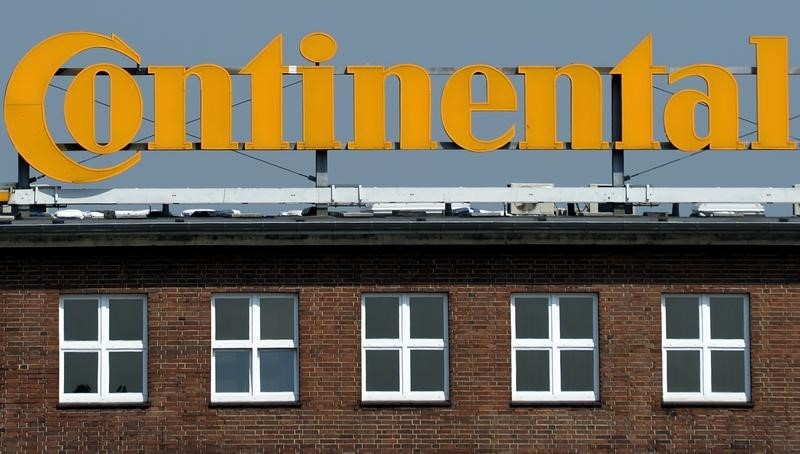BERLIN (Reuters) - Continental (DE:CONG) posted weaker than expected third-quarter earnings on Monday after a feeble start to the winter tyre season and slower growth in China's car market, sending its shares down almost 5 percent.
Adjusted earnings before interest and tax (EBIT) rose 11 percent to 1.08 billion euros thanks to higher demand for cars in Europe and North America, but that was still below the lowest of nine analyst forecasts in a Reuters poll.
Analysts were expecting a stronger performance of the tyres division which adds more than a quarter to group revenue.
The German auto parts and tyre maker nudged its full-year profit forecast higher due to lower raw material costs, saying it was aimed for an adjusted profit margin of "more than 11 percent" after previously targeting for "around 11 percent".
But analysts were unimpressed with the results, driving its stock down 4.6 percent and setting it on course for its biggest one-day drop in more than three years.
"One can say without any ifs or buts that the important numbers - EBIT, net profit and sales - were below expectations," said Bankhaus Metzler analyst Juergen Pieper, who recommends buying Continental stock.
Sales rose 11 percent to 9.62 billion euros, while net profit after minorities rose 28 percent to 636 million euros.
Continental stood by a goal to increase sales to more than 39 billion euros ($42 billion) this year, from 34.5 billion a year ago, citing "steady growth" in North America as well as Europe, where it makes more than half its sales.
Continental, which is strong in electronics, is benefiting from a push by carmakers to use more driver-assistance systems and emission-cutting technologies.
It bought Elektrobit Oyj's
The acquisition, together with the redemption of a U.S. dollar bond, pushed its net liquidity down 1.4 billion euros to 5 billion euros at the end of September, Continental said.

Finance chief Wolfgang Schaefer told Reuters in an interview he ruled out a larger acquisition this quarter. Continental's last major deal was the purchase of U.S. rubber company Veyance Technologies last year for 1.4 billion euros.